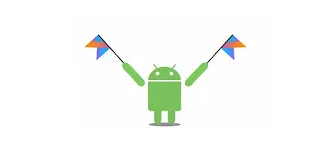14. Char data type in Kotlin programming language
🧩 Char Data Type in Kotlin: Deep Dive and Comprehensive Guide
Welcome, Kotlin enthusiasts! Today we'll explore one of the fundamental primitive data types in Kotlin - the char data type. Understanding chars is crucial for string manipulation, character processing, and low-level text operations.
📌 What is a Char in Kotlin?
In Kotlin, a char represents a single 16-bit Unicode character. It is declared using the keyword 'Char' and can store any Unicode character, making it incredibly versatile for international text processing.
val letter: Char = 'A' val unicodeChar: Char = '\u0041' // Unicode representation of 'A'
🔍 Char Characteristics
- Uses single quotes for declaration
- 16-bit Unicode character
- Can represent letters, digits, and special symbols
- Immutable type
🚀 Character Conversion and Operations
Kotlin provides multiple ways to work with characters:
// Character to Integer
val charToInt = '5'.digitToInt() // Returns 5
// Integer to Char
val intToChar = 65.toChar() // Returns 'A'
// Character checks
println('A'.isLetter()) // true
println('7'.isDigit()) // true
println('$'.isPunctuation())// true
🧠 Unicode and Escape Sequences
Kotlin supports various Unicode representations and escape sequences:
val newline = '\n' val tab = '\t' val singleQuote = '\'' val backSlash = '\\' val unicodeHeart = '\u2764' // ❤️ Unicode heart symbol
💡 Practical Exercises
⚠️ Common Pitfalls
🎯 Performance Considerations
Chars in Kotlin are lightweight and efficiently managed by the JVM. They have minimal memory overhead compared to string operations.
🔬 Advanced Usage
fun isPasswordStrong(password: String): Boolean {
return password.any { it.isUpperCase() } &&
password.any { it.isLowerCase() } &&
password.any { it.isDigit() }
}
🏁 Conclusion
The char data type in Kotlin offers robust, flexible character handling with extensive built-in functions. Master its nuances to write more efficient and expressive code.
📱 Stay Updated with Android Tips!
Join our Telegram channel for exclusive content, useful tips, and the latest Android updates!
👉 Join Our Telegram ChannelGet daily updates and be part of our growing Android community!


Comments
Post a Comment